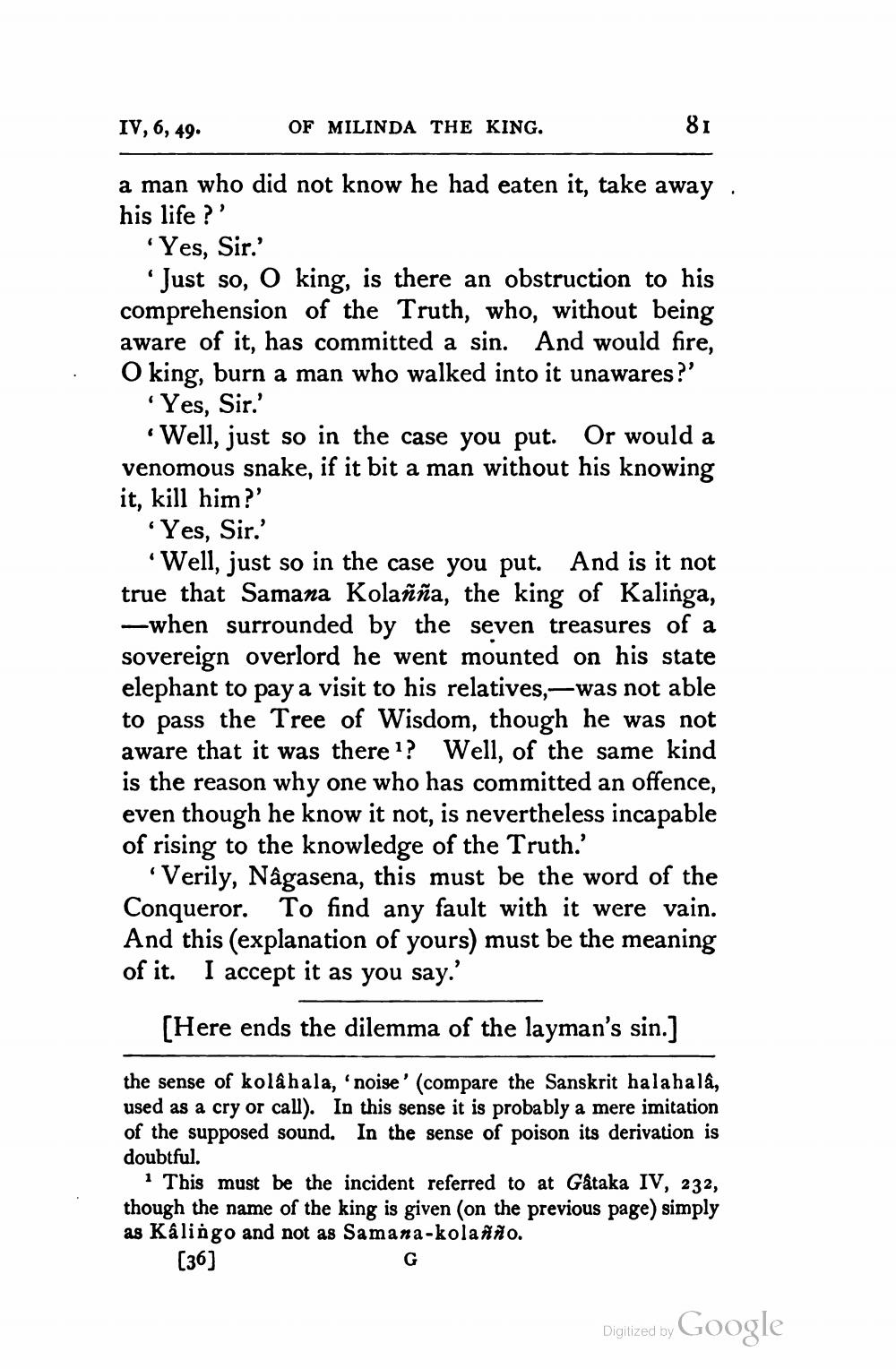________________
IV, 6, 49.
OF MILINDA THE KING.
81
a man who did not know he had eaten it, take away. his life ?' 'Yes, Sir.'
Just so, O king, is there an obstruction to his comprehension of the Truth, who, without being aware of it, has committed a sin. And would fire, O king, burn a man who walked into it unawares?'
Yes, Sir.'
Well, just so in the case you put. Or would a venomous snake, if it bit a man without his knowing it, kill him?'
Yes, Sir.' "Well, just so in the case you put. And is it not true that Samana Kolañña, the king of Kalinga, -when surrounded by the seven treasures of a sovereign overlord he went mounted on his state elephant to pay a visit to his relatives,—was not able to pass the Tree of Wisdom, though he was not aware that it was there 1? Well, of the same kind is the reason why one who has committed an offence, even though he know it not, is nevertheless incapable of rising to the knowledge of the Truth.
Verily, Nagasena, this must be the word of the Conqueror. To find any fault with it were vain. And this (explanation of yours) must be the meaning of it. I accept it as you say.'
[Here ends the dilemma of the layman's sin.]
the sense of kolá hala, 'noise' (compare the Sanskrit halahala, used as a cry or call). In this sense it is probably a mere imitation of the supposed sound. In the sense of poison its derivation is doubtful.
1 This must be the incident referred to at Gataka IV, 232, though the name of the king is given (on the previous page) simply as Kalingo and not as Samana-kolanno.
[36]
Digitized by Google




